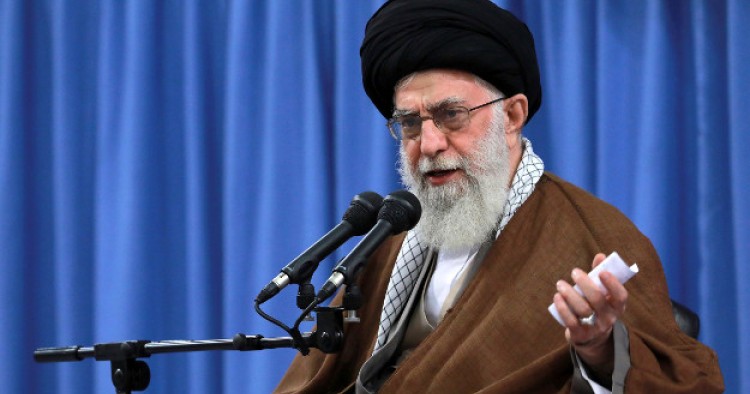Iran’s Supreme Leader Ali Khamenei on Sunday blasted the Trump administration for trying to create a regional security alliance to counter Iran, and claimed that the new initiative will not succeed. Iran needs to uphold its “revolutionary” values and aspirations and mobilize its youth to counter the country’s enemies, Khamenei said in a speech broadcast on state-run Iranian media commemorating the death of the Grand Ayatollah Ruhollah Khomeini, the founder of the Islamic Republic. The supreme leader also criticized the $110 billion arms deal between Washington and Riyadh, and claimed it would not affect Iran’s policies and interests in the region. “Such measures will lead to the disgrace of the Saudi government,” he stressed, adding that “even if they bring the US onboard with a multi-hundred-billion-dollar bribe, they will still fail to succeed.”
Comment: Khamenei’s strong criticism of Trump stands in stark contrast to optimism expressed by Iranian leaders, including the supreme leader, before Donald Trump took office in January.
On November 4, for example, marking the 37th anniversary of the U.S. embassy takeover, Khamenei delivered his usual, anti-American speech but his tone about Trump was unusually positive. “Have you watched the debates between the two American candidates? Did you observe the truths that they spoke of?” he asked. “And what is interesting is that the one who said these more explicitly, got more attention from the people. Because that man [Trump] spoke more clearly, more explicitly, the people of America gathered their attention toward him. The opposing side said that he is acting like a populist; populism, why populism? Because the people saw what he said and saw that those words were the truth; they had observed those in the realities of their own lives,” he added.
Other Iranian leaders also expressed the hope that then-candidate Trump’s favorable view of Russian President Vladimir Putin and the Trump team’s eagerness to work with Moscow in the war on terrorism might benefit Iran’s agenda in Syria and in the broader region. But that optimism has faded quickly over the past weeks as the Trump administration adopted an aggressive approach vis-à-vis Iran, by including the Islamic Republic in the travel ban, imposing new sanctions on Iranian entities, and warning Tehran over its controversial ballistic missile test. And after Trump’s visit to Riyadh last month, Tehran appears to be more worried about the Trump administration’s policy vis-à-vis the Islamic Republic than ever before.
The Middle East Institute (MEI) is an independent, non-partisan, non-for-profit, educational organization. It does not engage in advocacy and its scholars’ opinions are their own. MEI welcomes financial donations, but retains sole editorial control over its work and its publications reflect only the authors’ views. For a listing of MEI donors, please click here.













